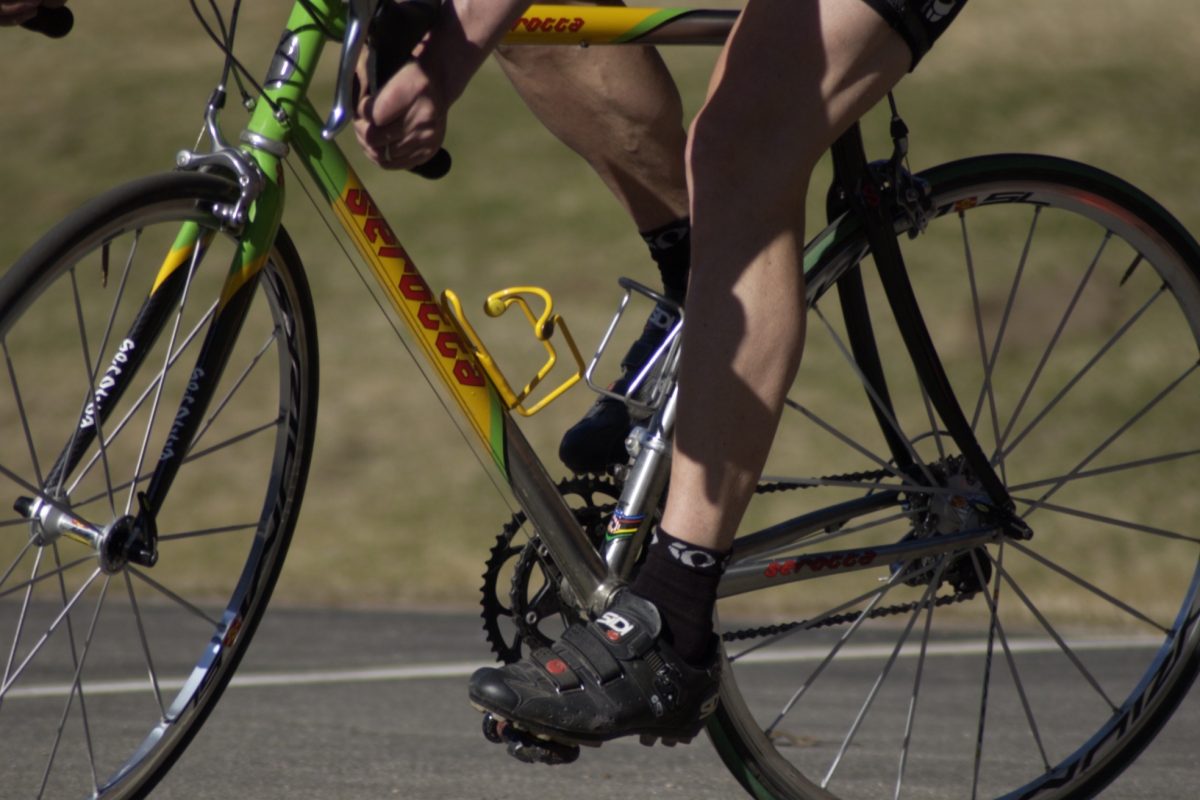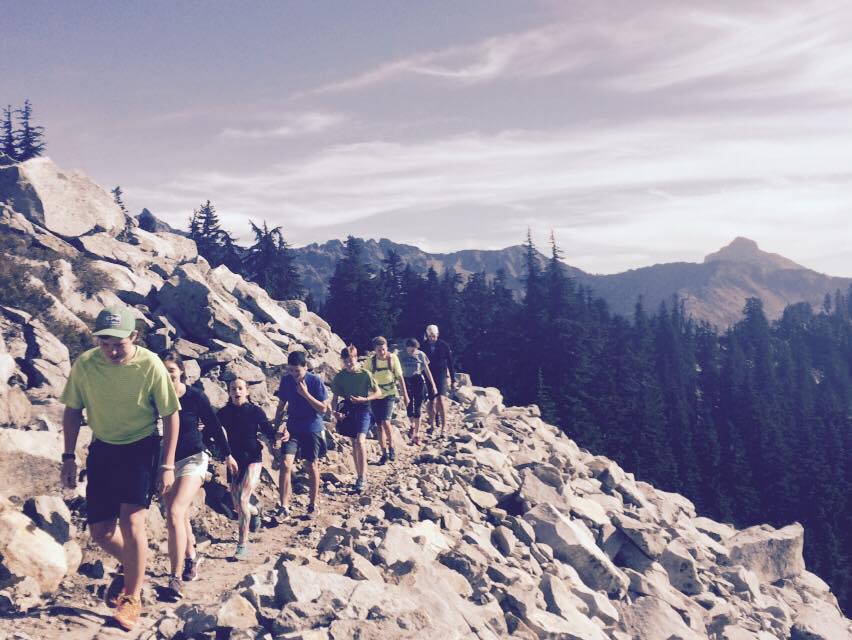
For elite skiers, resting well can be just as important as high-quality training. Morgan Arritola and Liz Stephen each learned that lesson the hard way, and both say that next year, they won’t make the same mistakes again.
Arritola, 24, and Stephen, 23, are entering their second year of World Cup racing for the U.S. Ski Team (USST). Both struggled to maintain their form for the full duration of their rookie winter, and neither cracked the top-30 at the Olympics in Vancouver. But now, as the 2010-2011 season kicks off, the two are refocusing, and have set their sights on the 2011 World Ski Championships in Oslo.
Normally, Stephen makes running a big part of her training, but she said that a foot injury last year led to a regimen of 85 percent rollerskiing, leaving her “exhausted” for the Games.

“I certainly overdid the rollerskiing last summer,” she said. “I don’t know how much of a choice I had, but I…didn’t get in the shape I wanted to get in.”
The injury has improved, though, and Stephen has been running this spring without any trouble. And even if she has to cut back, she said, “it won’t be as much rollerskiing as it has been last summer.”
“I’ll find another way to get fit,” she said.
Stephen and Noah Hoffman are the only USST members living in Park City for the whole summer, but Stephen said she’ll be far from lonely. There are University of Utah students training in town, juniors and U-23 groups coming in for development camps, and USST trips to Bend and New Zealand. And she can always ski with Hoffman.
“Noah is a great training buddy, even though I can’t keep up with him most days,” Stephen said.
Stephen’s goals for 2010-2011 are twofold. First, she wants to consistently place in the top-30 on the World Cup, with some stronger results early in the season “to get the confidence back up.” And then, there’s Oslo, where Stephen said she hopes to improve on her results from the 2009 World Championships in the Czech Republic.
Unless the early part of the year goes “incredibly well,” don’t expect to see her in the Tour de Ski.
“I think about it all the time…but I don’t think it’s in the cards for this coming year,” she said.
Arritola also will skip the Tour; she said she needs to up her sprinting game before entering—and she wants to make sure she’s firing on all cyclinders for Oslo.
Arritola will be training out of Ketchum, Idaho, where she works with the Sun Valley Ski Education Foundation. She’s not

planning on doing much differently from last year, aside from a little more training, and more rest.
“Just making the easier days easier, and really focusing on recovering well and not starting a hard week right off the bat if I’m not fully recovered,” Arritola said. “I think that might have been one of my problems last year…that I just didn’t rest quite enough.”
One thing Arritola will focus on is her closing speed—her ability to ratchet up the pace at the tail end of distance races, and fight for places. That means she’ll finish some moderate interval sessions with speed bursts, “to try to mimic the final sprint of a distance race.”
Neither of the two women will spend much time on the domestic circuit, but when they do, both will be supported by their home clubs—Arritola by Sun Valley, and Stephen by Burke Mountain Academy, where she went to high school.
Topher Sabot contributed reporting.
Nathaniel Herz
Nat Herz is an Alaska-based journalist who moonlights for FasterSkier as an occasional reporter and podcast host. He was FasterSkier's full-time reporter in 2010 and 2011.




9 comments
prairiekid
May 24, 2010 at 3:51 pm
I am kind of confused as to how rollerskiing is not a good way to get fit, I understand the possible muscle exhaustion but would it be much different then the way swimmers or cyclists train for their respective sports?
Just interested is all, I too am looking to RS less this but more so just to change it up
teamepokeedsbyn
May 24, 2010 at 5:42 pm
Like the Prairiekid, I too am confused, specifically regarding what the x-c media defines as a “rookie”…I do not race myself, but, according to FIS, both the racers in this article stated their World Cup carreers in 2007, or 3 years ago.
I would not call this a rookie situation. Would it not make sense, during these tough budget times for both us x-c ski teams and Aspen-ite’s Bill Marolt’s criminal defense fund, to set some sort of performance standards for a minimal average finish behind the winners required after a certian number of WC starts given?
Just makes sense to me, but maybe not others.
Tim Kelley
May 24, 2010 at 10:11 pm
It seems like when you look back over the decades at training ideas that once taken as gospel by US skiers – you see a pattern of mistakes. “Great” training ideas of the past didn’t seem like bad ideas back in the day, but now in retrospect they seem pretty dumb. In the 70’s it was “train long slow distance almost exclusively until the fall, then do some intervals”. Mistake. There was the phase where it was thought “weight lifting was dangerous for xc skiers and could easily be overdone.” Another mistake. “Biking is bad training for ski racing.” Not so, think Swenson, Norwegian national team and the current US 50km national champion. “You won’t know your true potential until your training kicks in at 28 to 30”. Wrong again – ever hear of Northug or Cologna?
I will wager that the next faux pas of training programs will be rest, as mentioned in this article. Sure, you have to get enough sleep to stay healthy. But couch surfing and making “easier days easier” is unlikely to win you races.
It seems in Alaska there have been good examples of skiers that never rest, yet kick most everyone’s butt. In particular – former and current APU coaches Frode and Holly. When these skiers are not training they are constantly in “active rest” doing their job, often on skis or in running shoes, for many hours of the day. As far as I can tell, couch surfing is never part of these skiers’ daily agenda.
So if downtime rest is such a necessity for a skier’s success, how can Frode (in his late 30’s) beat Freeman and the rest of the USST and win the ’08? National 50 km race in Fairbanks? And how can Holly work more than full time, come from nowhere and tromp on most USST athletes at Nationals and ski faster than them at the Olympics? How can these skiers that never rest and have full-time jobs beat skiers that can rest all day if they feel like it?
It seems rather ironic that the girls in this article say they need to rest more, when Holly, who never rests … usually places higher on the results sheet than them. Perhaps, if skiers such as these two girls want to get faster, they should embrace the concept of active rest or resting while they work for a living … rather than couch rest. Then maybe one day they might be able to ski fast enough to beat Holly.
nexer
May 25, 2010 at 7:22 am
This will be only their second year as fully supported athletes on the USST.
OEB2ODB
May 25, 2010 at 10:39 am
““I’ll find another way to get fit,” she said”
Dear Liz’s Coaches: It’s late May. Can we get Ms. Stephen a cross-training plan for the summer, ASAP? How can she not know this right now? The uncertainty in her statement really scares me. (maybe I’m reading too much into it.)
rgds – OEB
prairiekid
May 25, 2010 at 2:31 pm
Ok I want to be clear my post was not a judgment but rather a inquiry. There is more then one way to the top and I am always listening to what others do to climb the ladder.
skipow
May 25, 2010 at 5:27 pm
I’m wondering if they meant making easier days “psychologically easier”?
That would make more sense. I can see how rollerskiing all summer when you could be doing other stuff might cause you to struggle with focus in the fall.
Greater North
May 25, 2010 at 11:14 pm
Totally sad that our athletes have not yet figured out that training harder earlier on will improve their chances. XCSKIers seem to be the only athletes that I know of that really want to take their rest more seriously than other aspects. I would be willing to wager that 15-year-old high end swimmers/baseball players/basketball players/etc. (insert any sport you can dream of) in America put in far more more focussed hours than most of the national ski team. And we wonder why they are behind the curve. Other nations are far ahead of us far earlier because they are not afraid to push their athletes earlier.
Howdy
May 26, 2010 at 1:08 pm
Dear Liz,
It’s not the rollerskiing. It’s the training plan.